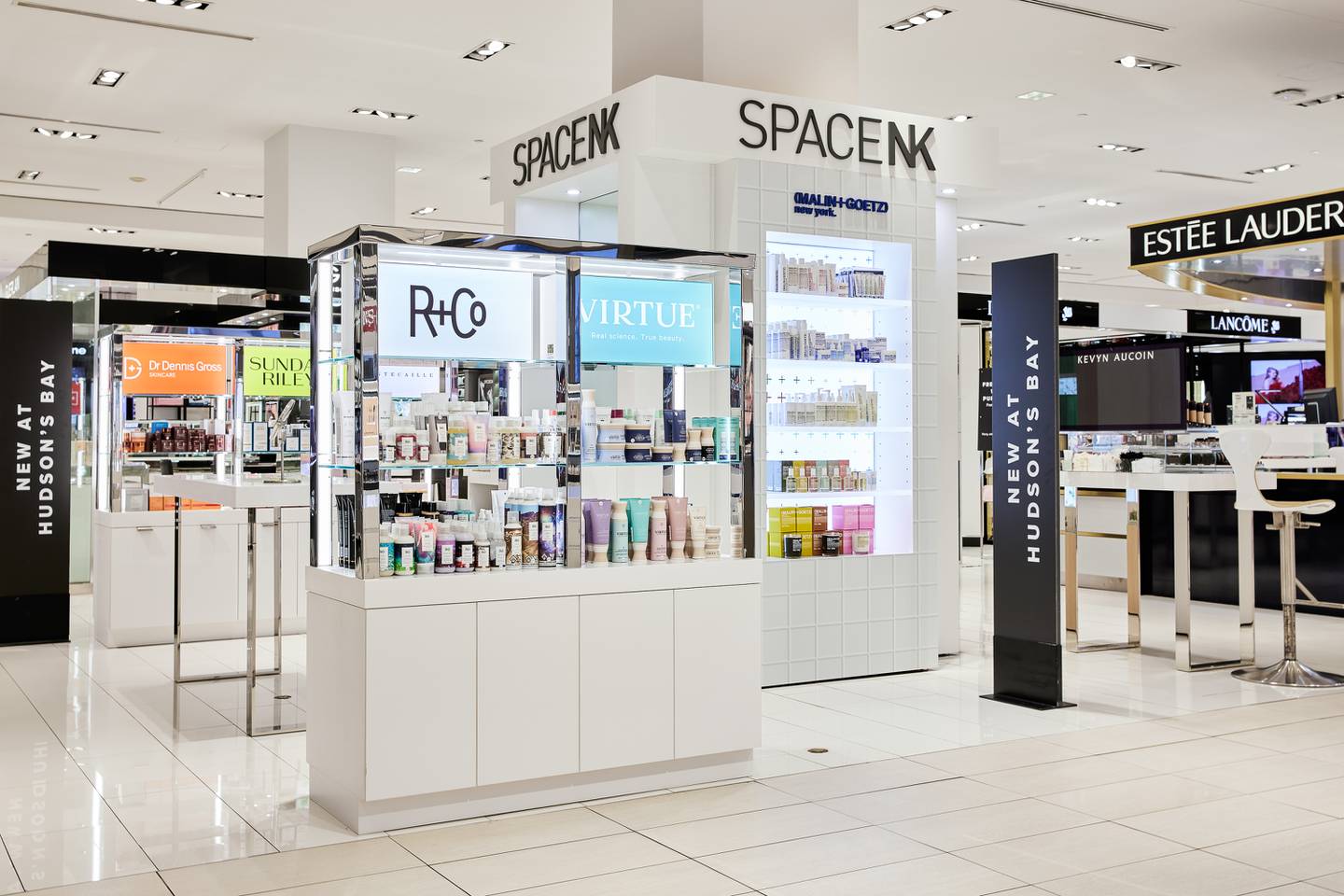
Hudson’s Bay president Sophia Hwang-Judiesch made a crucial decision when she took the top job at the Canada-based department store last September: she ignored the advice given to her by three mentors.
“They all told me, ‘You have to change out your team quickly,’” she said. “Don’t waste time. Bring in your own people.”
Instead, the executive — who also took over the company’s e-commerce business The Bay in January — opted to keep much of the retailers’ existing leadership team in place during her first six months and swore off bringing in new talent.
She leaned into her own inclination that “when you see the results of a business, it’s not reflective of the team.”
The instinct has so far proven true, Hwang-Judiesch said. The same team that took the company through soft revenue trends of 2022 were in place when the department store saw renewed sales growth in the fourth quarter, where overall revenues climbed 5 percent and store sales were up 22 percent.
It’s always been a part of her leadership mantra to “give people the benefit of the doubt [and] seek to understand how things work and how the processes come together,” said Kecia Steelman, chief operating officer at Ulta Beauty, where Hwang-Judiesch spent three years before moving to Hudson’s Bay.
Hwang-Judiesch has made a career out of change agentry, but she’s taking a calculated approach to “stabilising and streamlining” the retailer’s transformation. Key tenets of her plan include reclaiming Hudson’s Bay’s brick-and-mortar’s roots; luring in millennial and Gen-Z consumers without alienating the 45-year-old plus legacy customer; and leaning deeper into the beauty opportunity.
Taking Big Risks
Hwang-Judiesch has managed to build a career with wins many ladder-climbing leaders would love to add to their CV, but she’s also taken risks someone looking to keep a pristine resumé might be keen to avoid.
When she accepted her first big leadership role in 2005 as Country Manager for Taiwan at Esprit de Corp, she took charge of the company’s smallest market, which had consistently operated at a loss. The gig, Hwang-Judiesch said, was a wager that could easily have become a stain on her track record.
“My boss at the time said [the division] is losing a ton of money, you can’t really do anything to make it worse,” she said.
It took Hwang-Judiesch and her team about 18 months to make the division profitable and begin to carve out her reputation as “a turnaround queen,” she said. At Ulta Beauty as vice president of strategic initiatives, she simultaneously managed 13 workstreams, including merchandising, store operations, e-commerce and supply chain. Before that, she was senior vice-president at Carter’s Oshkosh, responsible for stores, e-commerce and wholesale.
“Especially early in my career, as a woman — and certainly a woman of colour — I felt like I always had to prove myself,” she said. “I was always like, ‘Okay, you’re going to underestimate me, well, then I’m going to show you.’”
Born to Korean parents who emigrated to Atlanta, Georgia in 1967, Hwang-Judiesch’s love of fashion and appetite for risk both sprung from the same root: a sales associate gig at a trendy boutique, Le Chateau in Canada when she was 16 years old. (The family moved to Canada when she was four.)
The job ignited her interest in a retail career path. “I stepped on the sales floor and knew I could do this for a living,” she said. But it also stood in defiance of her parents’ aspirations that their daughter would someday become a doctor or lawyer. “They just didn’t see retail as a natural choice,” she said.
In an unexpected way, the lessons from demonstrating the viability of a fashion career path to her parents and proving herself as a woman of colour in a male-dominated industry have helped build her resilience, Hwang-Judiesch said.
“There’s a stereotype of how a female Asian leader would be: she’d be hard working, wouldn’t challenge anything and keep her head down,” she said. “And I’m just not naturally like that.’”
A Tough Landscape
Department stores have faced tremendous pressures over the past five years with many of the industry’s most heralded names from mass-market retailer Sears to luxury stalwart Barneys shuttering amid digital disruption, fledgling turnaround efforts and waning relevance among younger consumers in particular.
“Taking on the role of CEO of a department store chain right now is extremely challenging, and the challenge is that the industry is changing so dramatically,” said Craig Rowley, a senior client partner at business consultancy Korn Ferry.
Despite department stores’ recent emphasis on e-commerce, HBC among them, Hwang-Judiesch is focused on finding the balance between digital innovation and the company’s brick-and-mortar roots.
In January, the company announced it was laying off about 250 corporate employees, or less than 2 percent of its workforce, citing “significant external pressures” as well as a re-alignment of “strategic priorities and increasing efficiencies” at e-commerce site, The Bay. (Sister firm Saks Fifth Avenue also laid off staffers on the e-commerce side of the business.)
“For the past couple of years, we had a very much a digital-lead strategy,” she said. “As we thought about what that customer wants to do — and beauty is a good example of this — they want to discover in stores and have a certain experience.”

Leaning Into Beauty
As Hwang-Judiesch looks to find the sweet spot between leveraging new growth prospects — like appealing to socially-conscious Gen-Z and millennial consumers — and revamping brick-and-mortar, she increasingly sees the beauty category as an important bridge.
“There is something about that visceral physical experience of discovering and playing in the beauty space with sampling and testing that really resonates,” she said. “How do we actually leverage this across multi-generational shoppers?”
One idea she’s mulling over is a switch away from brand-specific sales associates — or salespeople dedicated to specific labels on the beauty floor — to brand-agnostic beauty experts who can help consumers shop a range of products.
“The customer does their own research,” she said. “They know what the best moisturiser is on the market. They know what the best highlighter is. They don’t care about the brand.”
It’s a concept that shares similarities with the shopping experience consumers have come to appreciate at Sephora and Ulta Beauty. In fact, to execute her strategy at Hudson’s Bay and The Bay, Hwang-Judiesch is relying on many of the lessons from her time at Ulta Beauty.
“I think what Sophia has learned during her time at Ulta Beauty is that beauty is not superficial, it is how people can really transpose how they’re feeling on the inside,” Steelman said. “That resonates against all generations, whether you’re Gen-Z to Gen-X.”
Hwang-Judiesch also learned a critical leadership lesson when she was forced to pivot from launching the company’s planned entrance into Canada — a herculean undertaking that was upended by the pandemic in 2020 — to overseeing the buildout of Ulta Beauty’s shop-in-shops in Target, which culminated in 2021.
“At Ulta, I learned to let go of control… and to influence without control,” she said.



